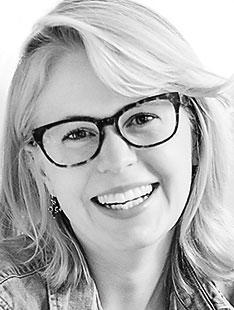Essay: Reflections on a Very Disorienting Year
Two months after graduating from Princeton, I was lying on my bed in a house I shared with eight strangers, Googling “how to make friends after college.” It was 1 p.m. on a Wednesday and, more than anything, I wanted to be back at school.
This was not a feeling I could admit to anyone. With my $200,000 education behind me, I was supposed to be reveling in my newfound freedom, hosting house parties, and confidently jotting off monthly rent checks to my landlord. I’d been diligent in preparing — getting good grades, applying for jobs — and this new life was supposed to be my reward. No one warned me that the first year out of college would be so difficult.
In the three years since I graduated, I’ve learned that most people feel this way. In fact, I spent most of my first year out of college interviewing four female classmates — visiting them in their new cities and writing a book about their post-Princeton experiences. As the year progressed and I realized how many feelings and experiences we shared, I decided to include my own story, too.
All five of us felt an acute pressure to excel. In college, the benchmarks for success were clear — grades, leadership positions, awards, fellowships — but in the working world, we found it much more difficult to prove that we had “made it.” It didn’t help that Facebook was constantly bombarding us with stunning examples of career success: Soon after graduation, one classmate published a feature story in The New Yorker, another raised millions for his startup.
We also felt alone. For the first time since kindergarten, I wasn’t surrounded by a ready-made community of peers my own age. Moving to Washington, D.C., forced me to actively seek out new friendships. But working from home without classes or extracurricular activities, I didn’t know how to build a new community.
Six months after graduation, after listening to 117 hours of Harry Potter audiobooks, I realized I needed to make some serious changes. In college, everything had been given to me: friends, mentors, goals, a daily schedule. Now, I had to establish those things on my own.
I became what I call an “aggressive friender.” While many of my college friends kept in touch online, I needed to supplement those Facebook relationships with face-to-face connections. I persuaded high school friends to introduce me to people in D.C. I reconnected with old acquaintances over coffee. I started a book club. Then I bought a pizza maker so I’d have an excuse to invite all these new friends over for dinner.
I started to alter exhausting thought patterns: Instead of worrying about what would impress people, I started thinking about what I actually wanted. I’m still working on that, but I do know that I’m happier when I’m not on Facebook comparing my achievements with those of others in my graduating class.
Writing my book allowed for honest conversations with my classmates about our first, disorienting year out of college. More than anything else, those conversations were what helped me get through it. Eventually, I started telling all my friends how hard the year had been for me. And more often than not, I learned that it had been hard for them, too.













No responses yet